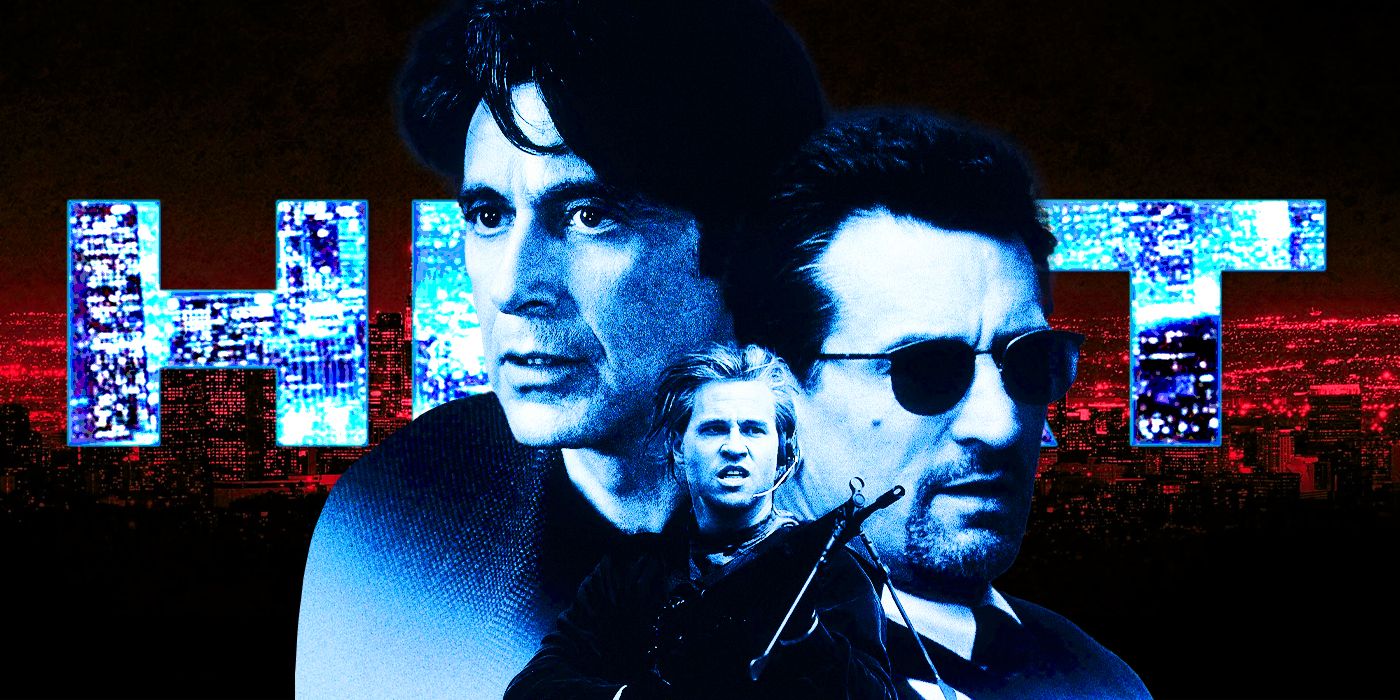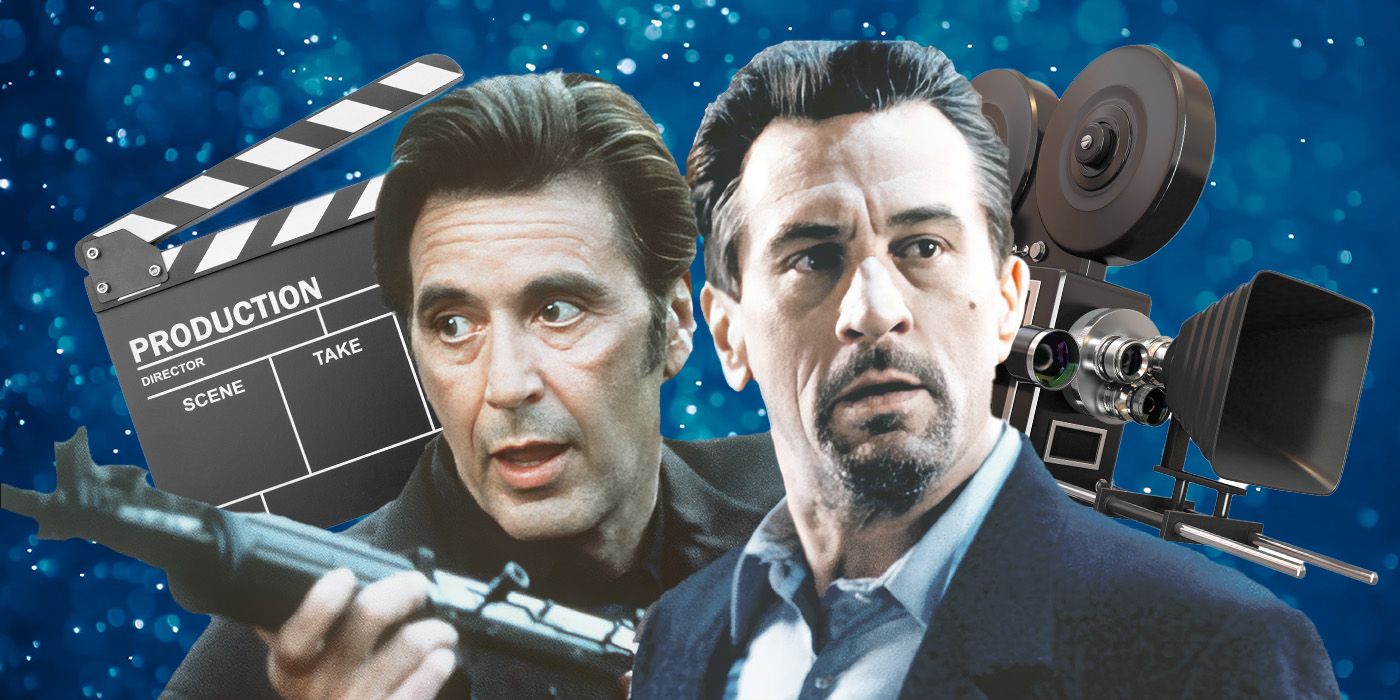The Big Picture
- Heat wouldn't exist without L.A. Takedown, Michael Mann's original retelling of the real-life crime story that inspired the film.
- Mann had to condense his original vision for Heat to create L.A. Takedown, which still delivered an intense crime drama with limited resources.
- With a bigger budget and more time to work, Mann fully realized his vision for Heat, resulting in a richer story.
Michael Mann's made plenty of iconic films throughout his career, but the standout is Heat. Unmatched in its scope and ambition, the crime epic pits Robert De Niro and Al Pacino against each other in a battle of wits while also exploring the cost that their characters' careers have wrought upon them. Mann even returned to the scene of the crime, so to speak, when he co-wrote Heat 2 – a novel that acts as both a sequel and a prequel to the original film. While Heat's impact can't be denied, it wasn't the first time Mann tried to tackle this story. In fact, not many people know that Heat is technically a remake of another Mann film. That film, L.A. Takedown, shares quite a bit in common with Heat but sharply diverges when it comes to one crucial aspect.

Heat
A group of high-end professional thieves start to feel the heat from the LAPD when they unknowingly leave a verbal clue at their latest heist.
- Release Date
- December 15, 1995
- Director
- Michael Mann
- Cast
- Al Pacino , Robert De Niro , Val Kilmer , Jon Voight , Tom Sizemore , Diane Venora
- Runtime
- 170 minutes
- Main Genre
- Drama
- Writers
- Michael Mann
- Studio
- Warner Bros.
'L.A. Takedown', Like 'Heat', Is Based on Actual Events
Mann came up with the story for L.A. Takedown, and later Heat, based on a story told to him by former police officer Chuck Adamson. Adamson had been pursuing career criminal Neil McCauley after a string of robberies, each more daring than the last. The two even ran into each other at a coffee shop – though Adamson didn't recognize McCauley at first. McCauley's luck ran out when Adamson pursued him after a grocery store robbery went wrong, eventually downing him. Adamson went on to serve as a writer on shows including Miami Vice and Crime Story, where Mann served as a producer. Anyone who's watched Heat can see how the real life story seeped into Mann's script – De Niro's character is named after McCauley, while the infamous diner scene between McCauley and Pacino's Vincent Hanna is a fictionalized version of the encounter Adamson had at the coffee shop.
In any case, the story stuck with Mann long enough that he wrote the screenplay for Heat after his debut film, Thief. Then NBC, fresh off the success of Miami Vice and Crime Story, approached Mann with the offer to make a new television series. Mann whittled down his original draft for Heat and pitched it as the pilot for the new series. However, NBC declined to take the pilot to series, so it was instead reworked into L.A. Takedown. While L.A. Takedown and Heat share the same basic story and cast of characters, the difference between the two projects is the amount of time and money Mann had to work with.

'Heat': The True Story That Inspired Michael Mann's Crime Classic
The film that saw Al Pacino and Robert De Niro share the screen for the first time is actually based on real events.Mann only had a shooting schedule of 19 days for L.A. Takedown, which flew in the face of his usual methodical approach to filmmaking. "I abstracted probably something like 110 pages from 180 pages... so it’s lacking in the sense that it’s not fully developed,” Mann said in an interview. Mann also ran into some conflict with NBC concerning the cast. For L.A. Takedown he cast Scott Plank as Hanna, with NBC choosing not to pick up the pilot when he refused to recast the lead. Despite lesser known stars and a truncuated production schedule, Mann still delivered an intense crime story. Part of that is due to Mann populating the cast with Miami Vice and Crime Story veterans. Genre fans might even recognize some familiar faces like Michael Rooker (Guardians of the Galaxy) and Cary-Hiroyuki Tagawa (Mortal Kombat) among its roster.
'Heat' Was a Literal Do-Over for Michael Mann
Mann would eventually get the chance to fully realize his vision of Heat in 1995. This time he had a better idea of what he wanted to bring to the table, and a much bigger budget. Heat cost a cool $60 million while also having a longer production timeline. "I charted the film out like a 2 hr 45 min piece of music, so I'd know where to be smooth, where not to be smooth, where to be staccato, where to use a pulse like a heartbeat," Mann would go on to say when detailing the method behind filming Heat.
To that end, Heat contains a number of plotlines that Mann had cut out of the L.A. Takedown script. Much more focus is given to the interplay between McCauley's crew, including a double cross from their fence Roger Van Zant (William Fichtner). Hanna's home life also gets some focus. He deals with his wife Justine (Diane Venora) having an affair while also struggling to connect with his stepdaughter. These changes not only make for a richer film with but also help to draw parallels between McCauley and Hanna through De Niro and Pacino's stellar performances.
While L.A. Takedown may not be as well remembered as Heat, it still should be considered as the bedrock for Heat's genesis. It also shows that no matter the medium, Michael Mann can still craft a compelling story.
Heat is available to stream on Max in the U.S.

